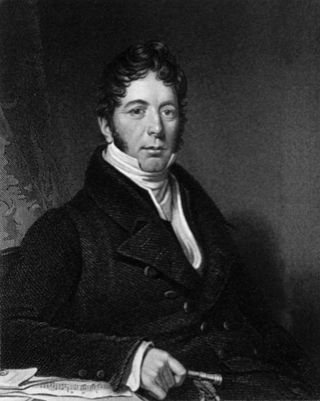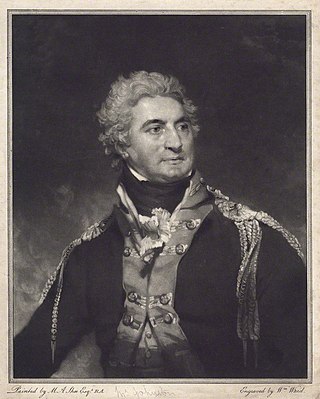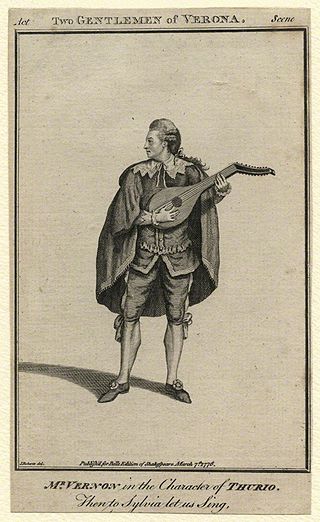This article has multiple issues. Please help improve it or discuss these issues on the talk page . (Learn how and when to remove these messages)
|
"The Night Before Larry Was Stretched" is an Irish execution ballad written in the Newgate cant.
This article has multiple issues. Please help improve it or discuss these issues on the talk page . (Learn how and when to remove these messages)
|
"The Night Before Larry Was Stretched" is an Irish execution ballad written in the Newgate cant.
The song is in The Festival of Anacreon, [1] with tune direction "To the hundreds of Drury I write." It is also listed in Colm Ó Lochlainn's Irish Street Ballads and Frank Harte's Songs of Dublin.
Donagh MacDonagh gives the following sleeve note 'One of a group of Execution Songs written in Newgate Cant or Slang Style in the 1780s, others being The Kilmainham Minuet, Luke Caffrey's Ghost and Larry's Ghost in which, as promised in the seventh stanza of the present ballad, Larry comes "in a sheet to sweet Molly"!' The Newgate Cant or Slang Style is not unique to Dublin and all the cant and slang is to be found in Partridge's A Dictionary of Slang and Unconventional English (1937). Nubbing cheat or Nubbin chit is cant for the gallows, while Darkmans is cant for night. James Joyce, working out of Thomas Dekker's The Gul's Hornbook and The Belman of London (1608), wrote:
White thy fambles, red thy gan
And thy quarrons dainty is.
Couch a hogshead with me then.
In the Darkmans clip and kiss. [2]
Writing in "Three Centuries of Canting Songs and Slang Rhymes (1536–1896)" (published 1896), John S Farmer asserted that neither the song's date nor its author were definitely known. He gave 1816 as an approximate date, and wrote "According to the best authorities, Will Maher, a shoemaker of Waterford, wrote the song. Dr. Robert Burrowes, Dean of St. Finbar’s Cork, to whom it has been so often attributed, certainly did not." [3] In Ballads from the Pubs of Ireland, p. 29, James N Healy attributes the song to a William Maher (Hurlfoot Bill), but doesn't note when Maher lived. However, the song is attributed to a 'Curren' in The Universal Songster, 1828, this possibly being the witty barrister John Philpot Curran or JW Curren.[ citation needed ]
The Newgate cant in which the song was written was a colloquial slang of 18th-century Dublin, similar to the thieves' cant still used in London (an example of the London use is seen in the 1998 film Lock, Stock and Two Smoking Barrels ). This is only one of a group of execution songs written in Newgate Cant or slang style somewhere around 1780, others being The Kilmainham Minuet, Luke Caffrey's Ghost and Larry's Ghost, which, as promised in the seventh verse, "comes in a sheet to sweet Molly". [4]
A French translation of the song called La mort de Socrate was written by Francis Sylvester Mahony, better known as "Father Prout" for Fraser's Magazine, and is also collected in Musa Pedestris, Three Centuries of Canting Songs and Slang Rhymes [1536―1896], collected and annotated by John S Farmer. [5]
The tune is not an Irish one, but stems from the first line of an English song, The Bowman Prigg's Farewell. The British Union-Catalogue of Early Music (BUCEM) lists four single sheet copies with music, all tentatively dated c 1740, and there is another copy in the Julian Marshal collection at Harvard. However, the tune To the Hundreds of Drury I write is in the ballad opera The Devil of a Duke, 1732, Air No 4 Bowman Prig is mentioned in song No 22 of the ballad opera The Fashionable Lady , 1730, but this may not be a reference to the song. "Bowman Prigg" is a cant term for a pick-purse.
The melody and first verse of To the Hundreds of Drury I Write are in John Barry Talley's Secular Music in Colonial Annapolis, 1988. The Night Before Larry Was Stretched is just possibly a reworking of, or may at least have been inspired by To the Hundreds of Drury.

Michael William Balfe was an Irish composer, best remembered for his operas, especially The Bohemian Girl.

Michael Arne was an English composer, harpsichordist, organist, singer, and actor. He was the son of the composer Thomas Arne and the soprano Cecilia Young, a member of the famous Young family of musicians of the seventeenth and eighteenth centuries. Like his father, Arne worked primarily as a composer of stage music and vocal art song, contributing little to other genres of music. He wrote several songs for London's pleasure gardens, the most famous of which is Lass with the Delicate Air (1762). A moderately prolific composer, Arne wrote nine operas and collaborated on at least 15 others. His most successful opera, Cymon (1767), enjoyed several revivals during his lifetime and into the early nineteenth century.

John "Jack" Sheppard, or "Honest Jack", was a notorious English thief and prison escapee of early 18th-century London.

Thomas Haynes Bayly was an English poet, songwriter, dramatist and writer.

Lawrence Cecil Adler was an American harmonica player and film composer. Known for playing major works, he played compositions by George Gershwin, Ralph Vaughan Williams, Malcolm Arnold, Darius Milhaud and Arthur Benjamin. During his later career, he collaborated with Sting, Elton John and Kate Bush.

Mountjoy Prison, founded as Mountjoy Gaol and nicknamed The Joy, is a medium security men's prison located in Phibsborough in the centre of Dublin, Ireland. The current prison Governor is Ray Murtagh.
"The Unquiet Grave" is an Irish / English folk song in which a young man's grief over the death of his true love is so deep that it disturbs her eternal sleep. It was collected in 1868 by Francis James Child as Child Ballad number 78. One of the more common tunes used for the ballad is the same as that used for the English ballad "Dives and Lazarus" and the Irish pub favorite "Star of the County Down".
George Alexander Lee was an English composer.

Sir John Andrew Stevenson was an Irish composer. He is best known for his piano arrangements of Irish Melodies with poet Thomas Moore. He was granted an honorary doctorate by the University of Dublin and was knighted in April 1802.

Catherine Clive Catherine ‘Kitty’ Clive was a first songster and star comedienne of British playhouse entertainment. Clive led and created new forms of English musical theatre. She was celebrated both in high-style parts – singing, for instance, Handel’s music for her in Messiah, Samson, and The Way of the World – and in low-style ballad opera roles. Her likeness was printed and traded in unprecedented volume. She championed women’s rights throughout her career.
Edward Francis Fitzwilliam was an English composer and music director.
O'Donoghue's Opera is an Irish film starring Ronnie Drew and his bandmates in The Dubliners. The film is a mock opera, based on the ballad "The Night That Larry Was Stretched". It was shot in 1965, but was left uncompleted after the film's production ran into financial difficulties. In 1996 filmmaker Sé Merry Doyle of Loopline film oversaw its restoration, and it was first shown at the Dublin Film Festival in the late 1990s. Producer Seamus Byrne's first job in the film industry was on this film working with the assistant director and the art director.

Dick Whittington and His Cat is the English folklore surrounding the real-life Richard Whittington, wealthy merchant and later Lord Mayor of London. The legend describes his rise from poverty-stricken childhood with the fortune he made through the sale of his cat to a rat-infested country. However, the real Whittington did not come from a poor family of common stock, and there is no compelling evidence supporting the stories about the cat, or even indicating that he owned one.
"Foggy Dew" is the name of several Irish ballads, and of an Irish lament. The most popular song of that name chronicles the Easter Rising of 1916, and encourages Irishmen to fight for the cause of Ireland, rather than for the British Empire, as so many young men were doing in World War I.
The Irish Jaunting Car is a folk song associated with the United Kingdom and Ireland. The words were reportedly written by the entertainer Valentine Vousden in the late 1850s, shortly after Queen Victoria's visit to Ireland, and events of the Crimean War. The original words to the song are widely debated and disputed.

John Henry Johnstone (1749–1828), also known as 'Jack' Johnstone or 'Irish' Johnstone, was an Irish actor, comedian and singer. He was a notable performer of Stage Irishman roles.

Matilda of Hungary is an opera in three acts composed by William Vincent Wallace to an English libretto by Alfred Bunn. It was first performed on 22 February 1847 at the Theatre Royal, Drury Lane, London, with Emma Romer in the title role. Unlike its predecessor, Wallace's first opera, Maritana, it was not a success and quickly vanished from the repertory.

Joseph Vernon was an English actor and singer. From his days as a boy soprano, he had a successful career on the London stage, interrupted only by the aftermath of an underage wedding to a colleague.